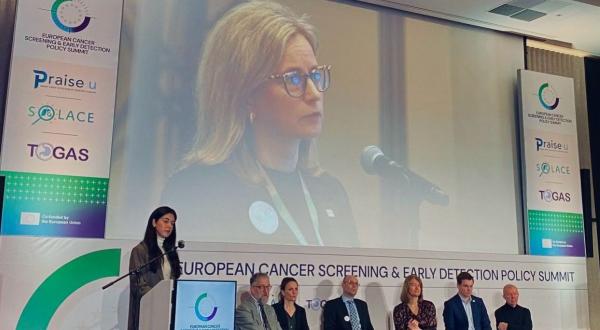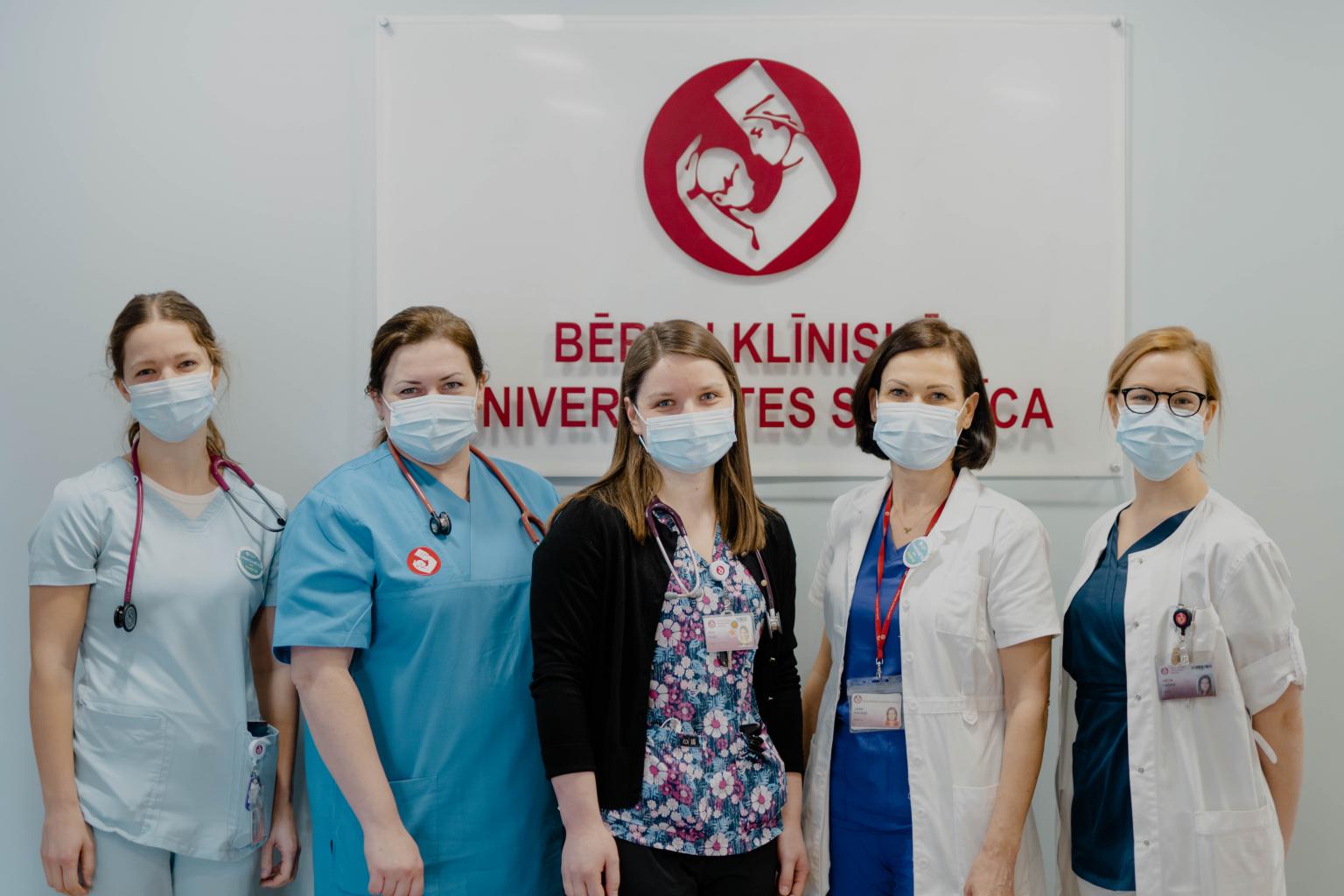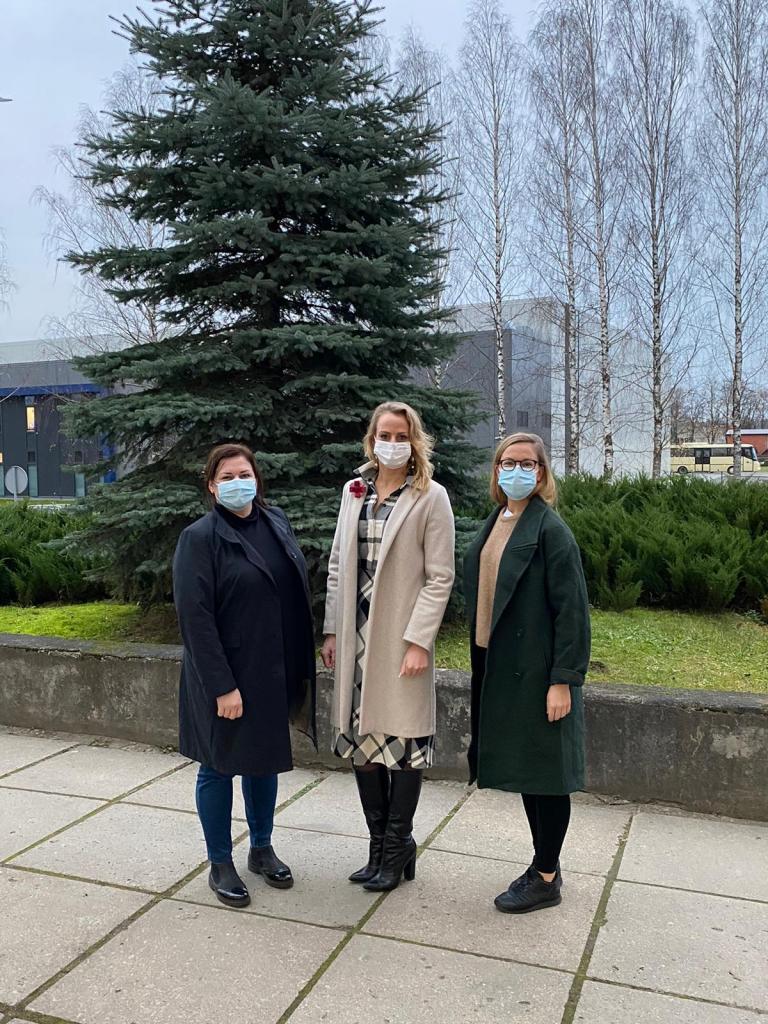Latvian Doctors’ Research on COVID-19 in Children Receives International Recognition
Even though there was little information to come by about COVID-19 in children in the early days of the pandemic, researchers from Rīga Stradiņš University (RSU) and a group of researchers from the Children's Clinical University Hospital (CCUH) joined forces as early as the summer of 2020 to study how patients under the age of 18 recover from SARS-CoV-2 and what the long-term consequences are.
The group of researchers included lecturers from the RSU Department of Pediatrics and doctors from CCUH as well as lecturers of the RSU Department of Public Health and Epidemiology and resident doctors from the Faculty of Medicine. As a result of their work, a data collection tool for assessing the long-term symptoms in children was developed. The tool includes the possibility to assess fatigue, quality of sleep, exercise tolerance, cardiovascular function, and quality of life. Along with publications in recognised scientific journals in the field of medicine, the researchers’ work has now also been recognised internationally.
Part of the project team at the Children's Clinical University Hospital (from the left): Lizete Kļaviņa, Zanda Pučuka, Ieva Roģe, Jana Pavāre and Iveta Račko.
‘At the beginning of the pandemic, researchers focused almost exclusively on the course of acute COVID-19 in the adult population. Although children in the acute phase of the disease are less likely to be hospitalised, over time it became clear that younger patients are also at risk of contracting the SARS-CoV-2 virus. The risk groups are infants under the age of one, children with obesity and chronic diseases, as well as children with immunodeficiency. At the beginning of the pandemic, there were only a few publications on the course of the disease in children. Furthermore, these publications covered a small number of patients, which is why we decided to understand how children in Latvia recover from the disease,’ explains pediatrician Jana Pavāre, RSU Associate Professor and Dean of the Faculty of Medicine and Deputy Head of CCUH. While developing a post-COVID-19 observation programme at CCUH in the beginning of the summer of 2020, the research team looked for families whose children had contracted COVID-19 so that they could obtain data to assess children's general state of health. The data would help them determine the long-term health effects of the possible consequences of the disease. The researchers also organised drives to Jēkabpils Regional Hospital and Murjāņi Sports Gymnasium, where children of different ages were consulted and examined.
The research has shown that children can develop two types of complications after having acute COVID-19: multisystem inflammatory syndrome (MIS-c) and persistent complaints, or so-called long-term symptoms of COVID-19. MIS-c is a severe, dysregulated immune system reaction that appears two to six weeks after a mild or even asymptomatic course of COVID-19 and manifests as a rapid deterioration of health: fever, fatigue, sleepiness, vomiting may occur, severe abdominal pain, diarrhea, shortness of breath or headaches. It has been observed that the skin and the mucous membranes have also been affected. All the children have defects in their cardiovascular system. So far, MIS-c has been registered in 27 patients in Latvia. If such symptoms occur, the child must be hospitalised immediately. In turn, long COVID-19 in children can manifest as fatigue, headaches, sleep or cognitive impairments, coughing, periodic fever, the inability to tolerate physical exercise. It is often difficult for children themselves to describe and understand their symptoms.
Digital symptom evaluation
According to Assoc. Prof. Pavāre, the research team’s contribution can be felt by both doctors and patients and their families in Latvia. One of the tangible results of the project for patients is the tool for evaluating and collecting data. The tool allows for an in-depth assessment of children’s symptoms and complaints, their psycho-emotional well-being and cognitive abilities. This will help families go to their doctor in time and help children cope better with their long-term symptoms. The researchers developed the tests based mainly on publications in the adult population, as well as separate articles about other infections in children, where the recovery process may have taken a longer period of time. The digital solutions have been developed by CCUH in collaboration with digital health start-up Longenesis, as a result of which two online screening tests have been developed. The tests should be completed by parents or by children themselves who has been experiencing symptoms for more than a month after recovering from acute COVID-19. In addition to the symptoms and complaints, the test will also show the child's psycho-emotional well-being and cognitive abilities, so that they know when to consult a doctor in time within the framework of the CCUC COVID-19 children’s recovery programme.
Publications in journals
The first data on patients that was compiled by Latvian researchers was already published internationally last December. Overall, a large number of international publications have been published over the past year and a half. A special achievement is an article published in the prestigious journal Frontiers in Pediatrics, which claims to be the second most quoted open access journal in the world in the field of paediatrics. The article “Comparison of Persistent Symptoms After Covid-19 and Other Non-SARS-CoV-2 Infections in Children” (authors: Asst. Prof Liene Smane, Assoc Prof. Anda Ķīvīte-Urtāne, lecturer Zanda Pučuka, the resident doctors Ieva Roģe, Iveta Račko and Lizete Kļaviņa, and Assoc. Prof Jana Pavāre) was published this autumn. The article summarises data from 236 patients, including patients who have recovered form COVID-19 and other infectious diseases. Its conclusion is that COVID-19 is the only disease after which children have long-term complaints. Although most COVID-19 patients (80%) experienced an almost asymptomatic acute phase of the disease, they faced different symptoms in the long run. In children up to four years of age, these include coughing, mood swings, irritability, sometimes even aggressive behaviour, and sleep disorders. Older children, especially adolescents, predominantly experienced fatigue, headaches, depression, memory and learning difficulties.
The article “Series of Multisystem Inflammatory Syndrome (MIS-C) in Children during the SARS-CoV-2 Pandemic in Latvia” was published in Clinics and Practice and explains the manifestations of MIS-c.
The researchers have described the clinical symptoms and recovery process in two other publications, one of them is “Persistent clinical features in paediatric patients after SARS-CoV-2 virological recovery: a retrospective populationbased cohort study from a single centre in Latvia” that was published in BMJ Pediatrics Open. An article that was published in the journal Global Pediatric Health in cooperation with Inese Stars, Assistant Professor at the RSU Department of Public Health and Epidemiology, explains the impact of the disease and recovery process on quality of life: “Impact of Pediatric COVID-19 on Family Health-Related Quality of Life: A Qualitative Study from Latvia”.
Related news
 RSU Professor Maija Radziņa represents Latvia at EU cancer screening summitResearch, International Cooperation
RSU Professor Maija Radziņa represents Latvia at EU cancer screening summitResearch, International Cooperation




